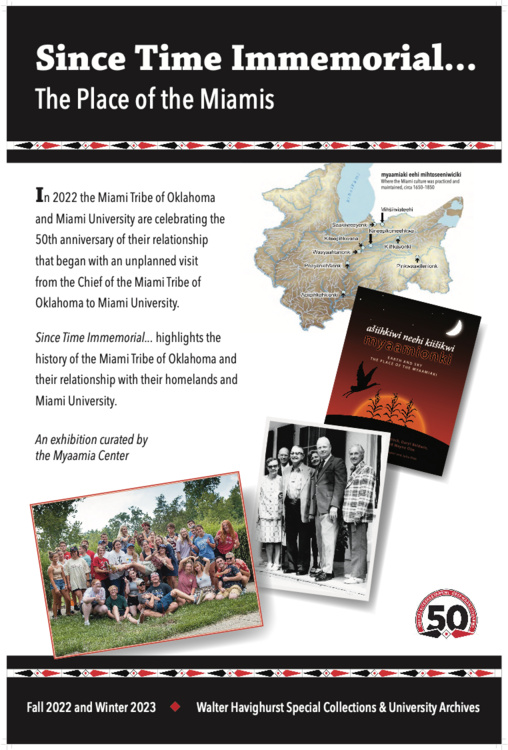As one year ends and another begins, November has been reserved as the time when we reflect on what we are thankful for. Here at the Walter Havighurst Special Collections and University Archives are beyond thankful. We are grateful for the partnership that Miami University and the Miami Tribe of Oklahoma, or Myaamia in the Tribe’s heritage language, have and the knowledge that has been given through it. For the past 50 years, the Miami University community has been privileged with having panels, speeches, and exhibitions featuring not only Myaamia culture and history but Tribal citizens themselves.
Our current exhibition, titled “Since Time Immemorial… The Place of the Miamis”, features this partnership and the history of the Myaamia people. The content of this exhibition is divided into seven parts covering historical events from the late 1600s to the present. The items curated for this exhibition are a few items from collections housed at the Walter Havighurst Special Collections and University Archives. On October 21st, the Miami University community was invited to meet with staff from the Myaamia Center to talk about a number of the materials on display and their importance in the history of the Myaamia people. On November 9th at 1:30 pm in Room 320 at King Library, members of the Miami Tribe will share the Coming Out Story, the oldest story the Myaamia people have for themselves. An exhibition tour and light refreshments will follow the storytelling program.
November 14th will mark 20 years since we began housing the Myaamia Collection. The Collection was established as a repository that represents the cultural and historical perspective of the Miami Nation. This would include but is not limited to various historical documents, family correspondence, and photographs. One of our most viewed materials from the Myaamia Collection is the Luke Scheer Papers. Although Scheer was not a citizen of the Miami Nation, he was interested in the Myaamia people as he grew up in Huntington County, Indiana. This county has a historical and contemporary Myaamia presence. This allowed him to attend several Myaamia-centric events during his childhood. As an adult, he became interested in Myaamia history and genealogy. Many of the papers included in this collection are correspondence between Luke Scheer and some Tribal citizens regarding their Myaamia ancestry.
While Miami University celebrates the Myaamia people and their culture and history, we have collections that contain general information on many other Native American tribes and their heritage. Our first collection donated to us with this focus was the Ferdinand Bach Collection of Native American Materials. As described by Ferdinand Bach III, the donor of this collection, “a major focus of this collection is on the Old Northwest Territory and the Woodland cultures of the Native Americans of that region.”
Fine arts can be expressions of culture. The Native American Women Playwright Archive is just that. This archive is a collection of original materials by Native women playwrights of the Americas. It includes manuscripts and plays as well as production materials such as programs, posters, flyers, photographs, correspondence, articles, and audio-visual materials. The collection features the works of various Native American women playwrights, including Diane Glancy, Judy Lee Oliva, Hortensia and Elvira Colorado, Victoria Kneubuhl, and many others. Many of the plays found in the archive are unpublished and available only in manuscript form. This is quite the opportunity for our researchers to view one-of-a-kind materials that allow them to see Native American cultures and histories artistically compared to the many books we have containing research or personal accounts of Native Americans and their respective cultures. We are honored to be the repository for Spiderwoman Theater, the country’s longest-running women’s performance group.
50 years of partnership is such an important milestone. It demonstrates the dedication and commitment that both the Miami Tribe of Oklahoma and Miami University have to a common goal of neepwaantiinki, “learning from each other”. The Walter Havighurst Special Collections and University Archives will continue to be a space of learning and research about all cultures for all cultures. To view any of the above-mentioned collections or our other collections, feel free to visit us Monday through Friday from 8 am to 5 pm. Appointments are very much appreciated but are not required.

